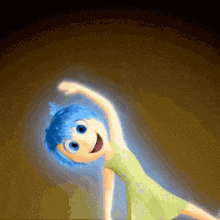In an age of artificiality, of photoshopped Instagram posts and curated moments displayed for the public, sometimes we just want to see the real and authentic side of people. What better way to embrace authenticity in entertainment and media than reality TV shows?
We’ve all seen reality TV at some point in our lives, one way or another. Maybe it was playing in the gym or on the ceiling of your dentist’s office. Maybe you were obsessed with The Great British Bake Off and almost burned down your kitchen trying to recreate Liam’s Salted Peanut Millionaire’s Shortbread. Either way, it’s safe to say reality television has found a way to permeate our lives, offering a great deal of entertainment, drama, and memes – Abby Lee Miller, John Quiñones, Kim Kardashian, Simon Cowell, and Gordon Ramsey have basically become pop culture phenomena and icons. But it wasn’t always like this. Reality TV has had its ups and downs, but now it's back in full force and almost revitalized with the craze surrounding shows like Love Island and The Secret Lives of Mormon Wives. So how have we gotten to this point, and more importantly, is this a good point to be at?

Image Credit: Tenor
Let us slide into your dms 🥰
Get notified of top trending articles like this one every week! (we won't spam you)The Origins
Well before the glamorous golden buzzer, dramatic music, and couch interviews, the mid and late twentieth century was just getting started with the concept of “real”. In the 1940s and 50s, what some consider to be the original “prank show” emerged as hidden cameras filmed real people in awkward or funny situations in the show Candid Camera. In 1978, the first reality television show An American Family made its debut, showcasing the raw and authentic daily lives of a family, bringing a very personal feel to entertainment.

Family photo of the Louds: the first reality TV show family.
Image Credit: PBS-Public Broadcasting System from Wikimedia Commons

Take the Quiz: Which Squid Game Player Are You?
Ever wondered which player you’d be if you found yourself in the Squid Game universe? Take this quiz to find out which character matches your perso...
Taking It To The Next Level
In the 90s, things took a turn with the emergence of MTV and with it, shows like The Real World which featured a house composed of young adults, and showed their lives and struggles. This became a cultural phenomenon and hit. The 90s also introduced Cops, which showed real police footage, and Survivor, which introduced the idea of a competition show and the isolation of an island. Overall, these shows helped with the popularity of reality TV and helped make it mainstream.
Reality TV Takes Over
The 2000s were a reality TV explosion. New seasons of Survivor and Big Brother induced a thrill of suspense and excitement as competition based shows took off. American Idol and Keeping Up With the Kardashians turned regular people like Carrie Underwood and Kim Kardashian into celebrities. The Bachelor let people believe in love and kicked off the dating show craze. By the mid-2000s, reality TV shows could be found everywhere and about almost anything, whether it be cooking with Top Chef, dancing with Dance Moms, and even fashion with Project Runway.

Image Credit: Josh Hallett from Wikimedia Commons
Today
As the internet grew, so did reality TV. The seasons stretched out of cable networks and into streaming platforms. Platforms like Netflix even began to capitalize on the popularity of these shows by introducing their own, creating cultural staples like Too Hot to Handle or Love is Blind. Contestants of these shows were also able to capitalize off a show's success, being able to have booming careers after a single season of being on a show. MasterChef winner Christine Ha was able to open up her restaurant, The Blind Goat, which was awarded semi-finalist for Best New Restaurant in America in 2020. Social media has allowed reality TV to reach a wider audience as Love Island becomes one of the hottest trending topics on TikTok. With viewers making niche references to certain people or moments, the culture of reality TV has become more accessible to all.

Image Credit: freestocks from Unsplash
Should We Be Following Reality TV?
Reality television allows its viewers to experience drama without consequences from their couch. It’s entertaining to watch another human being deal with the trials and tribulations of life, and it can be deeply relatable, because reality TV presents itself as dealing in authenticity and real people. But oftentimes what viewers don’t see are the editing, staging, and strings pulled from behind the scenes. In short, despite its name, reality TV is not real. But because it’s branded as such, it can create false expectations as well as promote unrealistic standards and toxic behaviors. It’s okay to follow and derive enjoyment from reality TV as long as you, as a viewer, can understand that reality TV shouldn’t be taken as an indicator of real life.










